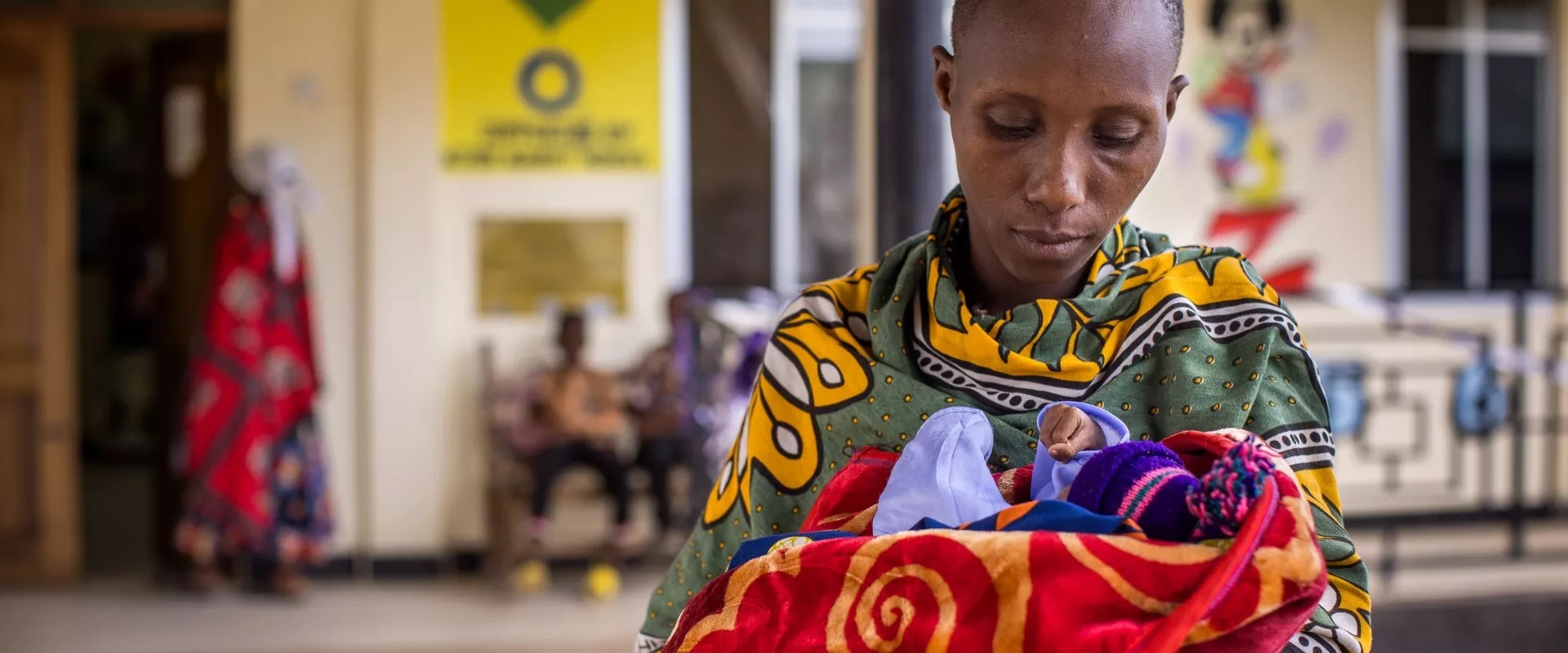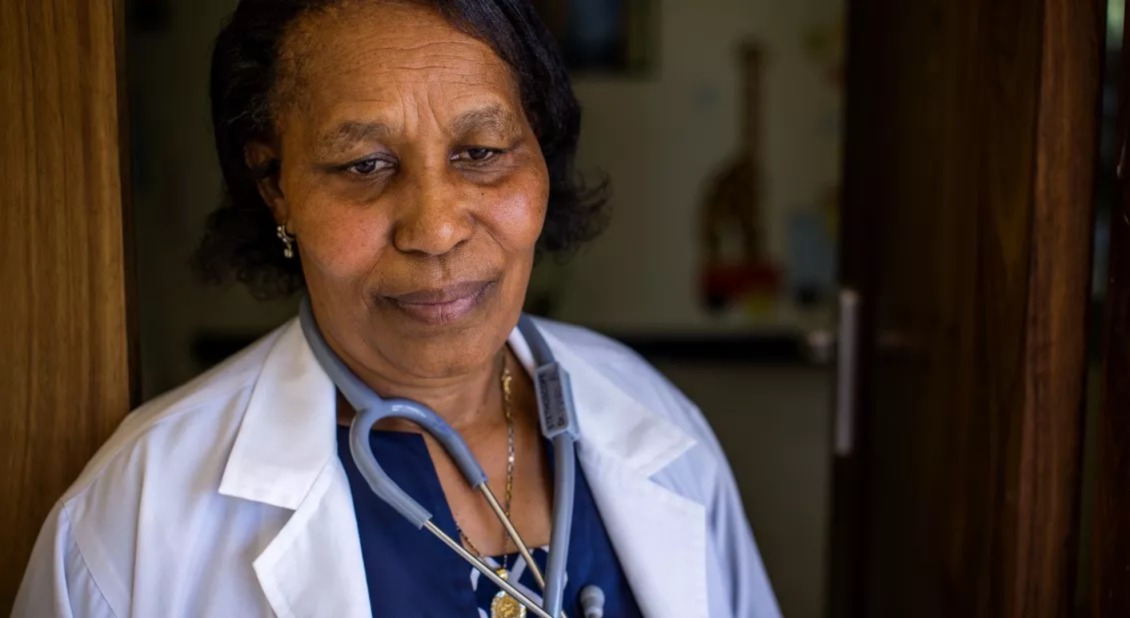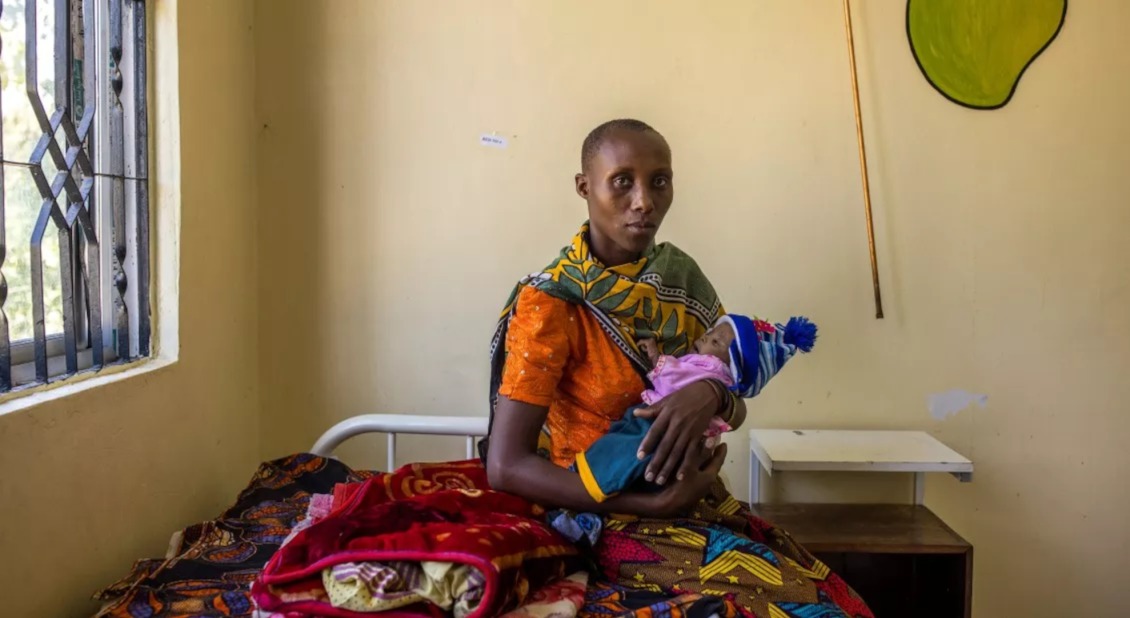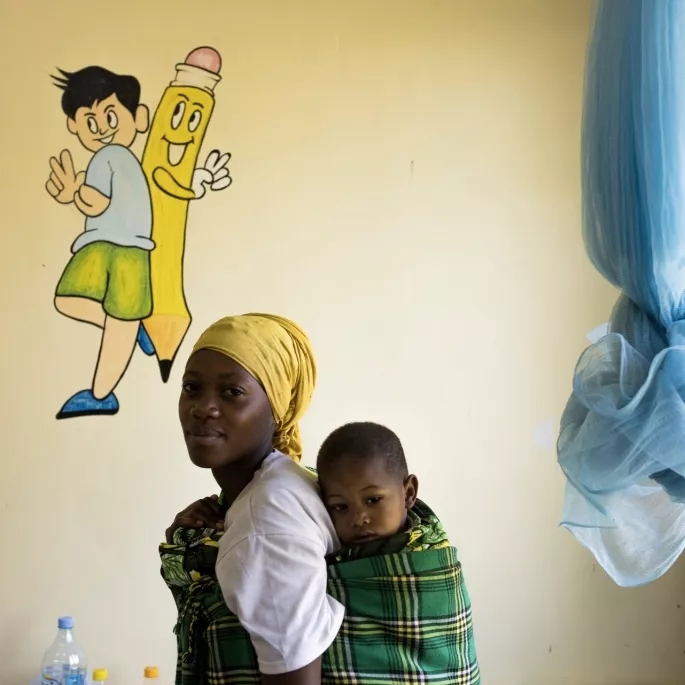
GIVE THIS RAMADAN

Even before entering the Kiomboi Therapeutic Feeding Unit, you can hear babies crying. At this hospital in Tanzania’s Iramba district, extremely sick children fight their way back to health with support from Action Against Hunger.
Babies here are receiving treatment for malnutrition. Some are also ill with fever, malaria, and other complications. Dr. Salma Mahayu is part of the team—three doctors and four nurses—who oversee each patient’s care and support their families to learn about health and nutrition.
Dr. Salma has been working in this treatment facility since Action Against Hunger established it in 2021. The unit was created to make health and nutrition services more accessible to the hundreds of thousands of people who call Iramba home.
Before the Therapeutic Feeding Unit existed, people had to go to the regional hospital more than 60 miles away for lifesaving treatment. Some families couldn’t afford to travel, and many were forced to stay at home with sick children until they lost their lives.
To date, Dr. Salma and her colleagues have treated more than 340 children with severe acute malnutrition and supported families in Iramba district and beyond.
“I am happy we can save lives, change the lives of children, and raise awareness about what malnutrition is, its causes, and its treatment. We are changing community perception away from connecting the disease with beliefs about witchcraft,” says Dr. Salma.
For some people in the community, traditional beliefs around witchcraft—and its ability to cause childhood illness—meant that children were not taken to doctors or other medical professionals until they were extremely malnourished and sick. Dr. Salma and others in the community are working to increase awareness about the signs and symptoms of malnutrition to get their children treated sooner.
To raise awareness in the community, Action Against Hunger trained community health volunteers, local government leaders, and other health workers within the district. Their efforts paid off. The number of children admitted to the treatment facility rose significantly, and more parents ensured proper follow-up after being discharged.

As the number of patients at the Therapeutic Feeding Unit steadily grows, the center struggles to keep supplies in stock—they have trouble securing enough special milk formulas like F75 and F100, rehydration salts, and ready-to-use therapeutic foods for malnourished children. Dr. Salma calls upon the government to increase the supplies they provide to the hospital to treat the increased number of patients they’re receiving.
“Those are very important parts of the treatment protocols. The hospital cannot do it alone,” adds Dr. Salma.
The Therapeutic Feeding Unit admits as many as five children for inpatient treatment and provides about 10 children with outpatient support every week. The staff at the hospital would like more financial support to provide more community-based outreach—this work at the village level is essential to identifying children in need of care.
Kundi Kija, a 28-year-old mother of five children, is a resident of Nkonkilangi village, located about 40 miles away from the hospital. Her youngest child, just one month old, was recently admitted for treatment and is currently on oxygen support in the Therapeutic Feeding Unit.

“The reception and service provided to us as soon as we arrived were good. After a checkup, I was told my child is malnourished. After learning that I should breastfeed exclusively for the first six months, I realized where I made a mistake,” she says.
Kundi says she never had enough breast milk, which forced her to introduce cow milk and porridge to her baby. Now, she knows more about what to eat as a breastfeeding mother to produce enough milk—nutritious foods like vegetables, fish, and fruits. She has also learned what locally available foods are best to feed her growing young children.
Kundi stayed with her child at the hospital for a month and a half, and then, when it was safe to go home, they were discharged. She promises to be a good ambassador to other breastfeeding mothers—to share all of the knowledge she’s gained.

Action Against Hunger works with local partners in Tanzania to treat malnutrition and save lives. Our teams improve livelihoods by teaching climate-smart farming techniques, educating women and adolescent girls, and working with farmers to strengthen food security.
The mothers at the center learn about healthy diets, breastfeeding, and other ways to improve their own health and their children’s health. In the community, health workers deliver these messages to other women. To end hunger in the district, Dr. Salma advocates for greater financial support to allow more health workers to make more visits to rural areas so they can train more people on healthy local foods and how to prevent malnutrition.
Join our community of supporters passionate about ending world hunger.